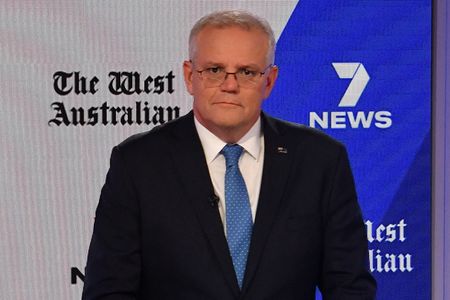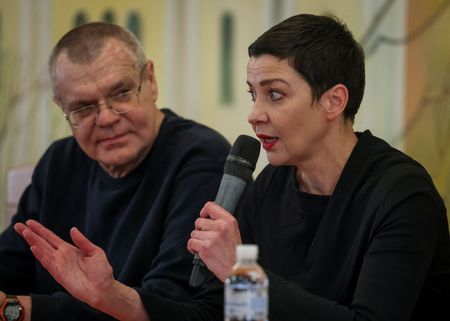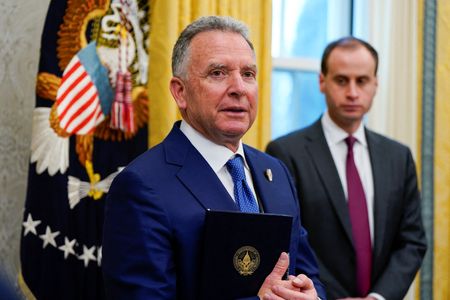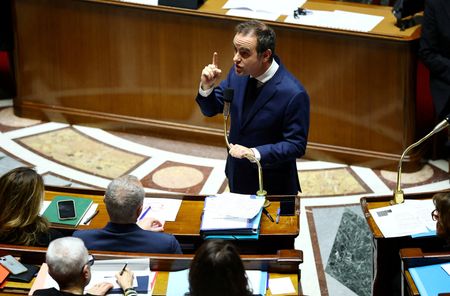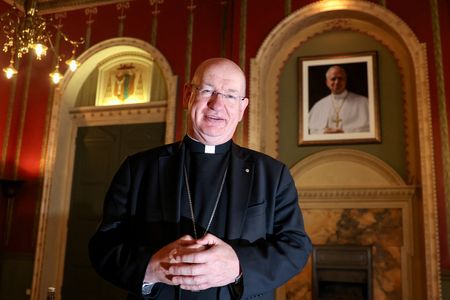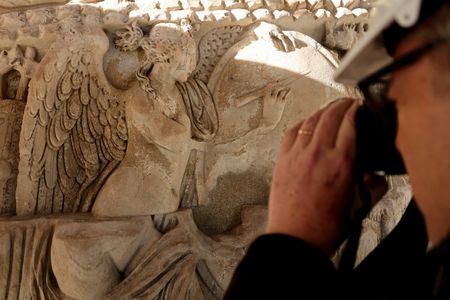By Kirsty Needham
SYDNEY (Reuters) – Three years ago, Scott Morrison’s ebullient personality as the little known and newly installed leader of Australia’s Liberal Party was a big factor in its unexpected election victory.
Now Prime Minister Morrison’s personality is a liability, with public attacks from members of his own party and polls showing his government on track to lose to the Labor Party in a general election next week.
Confronting his unpopularity on Friday, he acknowledged being a “bulldozer” but said he would change after the May 21 vote.
Morrison’s standing has plummeted since mid-2020, when voters’ satisfaction with him was 40 percentage points above dissatisfaction, to minus 14 points now, according to a Newspoll survey published by The Australian newspaper this week.
“Voters know Morrison extremely well now, and they don’t like him,” said University of Canberra political historian Chris Wallace, who wrote a book about Morrison’s 2019 win.
“Voters now see him as a leader who dodges responsibility in times of national crisis and whose word cannot be relied on.”
Wallace said the unfavourable view was “reinforced by a series of damning character assessments by his own coalition colleagues” as well as leaked texts.
In one text, Deputy Prime Minister Barnaby Joyce called Morrison “a hypocrite and a liar”, a comment for which Joyce later apologised.
Wallace noted that French President Emmanuel Macron had said in November that Morrison lied to him about a submarine-building contract.
Morrison responded at the time that he had never lied in his career as an elected official.
Voter sentiment first fell in response to Morrison’s handling of bushfires that killed 24 people and left thousands homeless.
He took a family holiday to Hawaii in December 2019 during the crisis, for which he apologised.
His popularity recovered briefly as COVID-19 hit but resumed its slide from mid-2020, Newspoll shows.
Concetta Fiarravanti-Wells, a long-serving Liberal senator from New South Wales, Australia’s most populous state, told parliament, “In my public life I have met ruthless people – Morrison tops the list.”
‘THINGS ARE GOING TO HAVE TO CHANGE’
Morrison will not repeat his “miracle win”, said John Warhurst, a professor of political science at Australia’s National University.
“In 2019 he was more fresh-faced as prime minister. Now the scars of the debate about integrity are there.”
Responding on Friday, Morrison said Australians had needed strength from him during the pandemic and this meant they had not seen other aspects of how he worked.
“Australians know that I can be a bit of a bulldozer,” he told reporters. “On the other side of the election, I know there are things that are going to have to change with the way I do things.”
In the final election debate on Wednesday, Labor leader Anthony Albanese echoed the most damning criticism from members of Morrison’s own party and attacked his response to shortages of COVID vaccines and then rapid antigen tests.
Morrison responded that he did not get everything right but that Australia’s pandemic death rate was lower than that of other countries. He called Albanese a “loose unit” with no experience running the economy.
The prime minister has been energetic in the campaign, said Warhurst, but he has stayed away from Liberal electorates in the biggest cities, Sydney and Melbourne, where government MPs risk losing centre-right voters to a wave of mostly female independent candidates.
In one such seat, Morrison did not attend Treasurer Josh Frydenberg’s campaign launch.
Morrison’s office did not respond to Reuters questions on whether he has avoided campaigning in seats contested by such independents.
Historian Wallace said Morrison had constructed an everyman image in 2019 that appealed to ordinary people when the opposition leader was disliked.
But she said it will not work this time, when he is up against “a little known but benign opposition leader”.
Albanese told voters on Friday that Morrison “is saying vote for me and I will change.
Well if you want change, change the government.”
(Reporting by Kirsty Needham; Editing by William Mallard)

